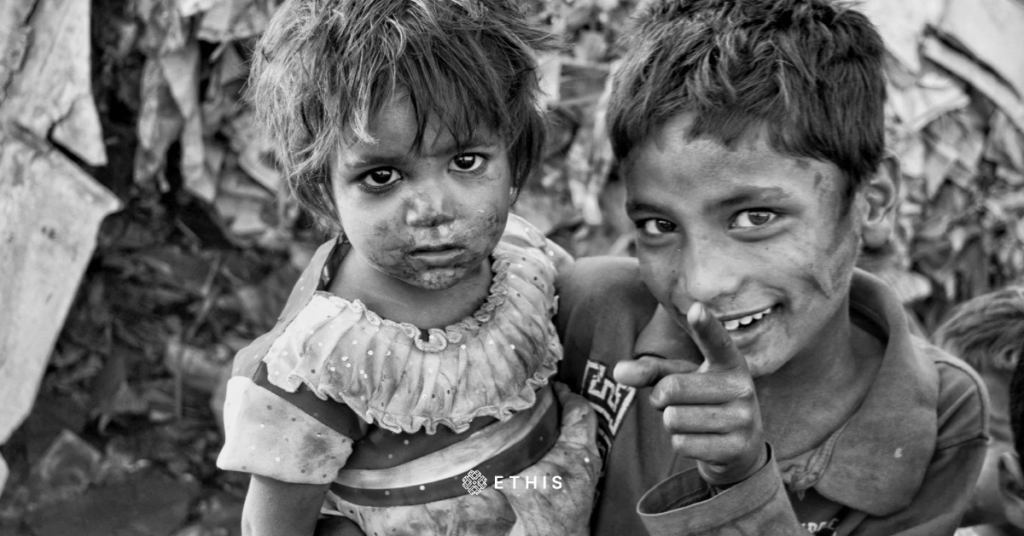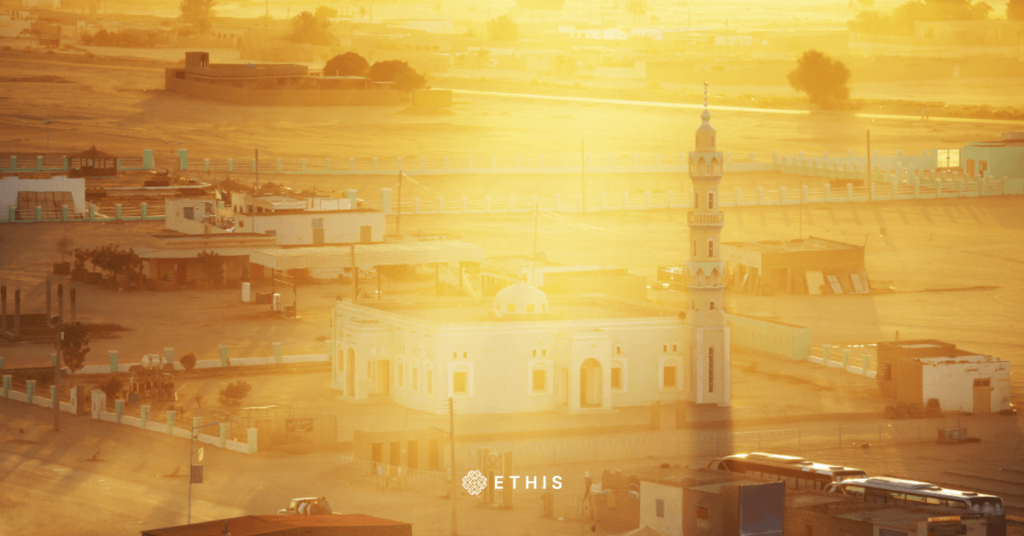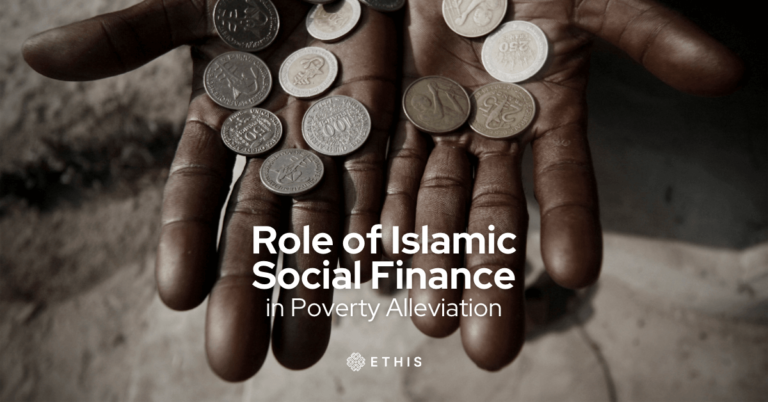
By Hanan Hussain
Islam is a religion of social justice. Quranic verses and the teachings of Prophet Muhammad (ﷺ) sought to eliminate injustice and poverty which was widespread all over the world at that time as today. Both poverty and inequality are the root cause of many evils. This was even recognised by the Prophet (ﷺ) who said; “Poverty almost leads to disbelief” (Musnad Ahmed).
Islamic scholars elaborate principles such as human welfare, public accountability, social justice which are all are embedded in the Islamic economic system according to the Maqasid al Shariah (Objectives of Shariah).
Poverty a serious global problem


About 9.2% of the global population, or around 689 million people, live in extreme poverty according to a World Bank report. Following the COVID-19 pandemic it is estimated that around 711 million people live in extreme poverty. Conflicts and climate change have aggravated the situation further.
If we identify people who experience deprivation with respect to health, education and living standards, it is shocking that as many as 1.3 billion people living in 107 countries who account for 22% of the world population live in Multidimensional poverty. Most of them, around 84% live in South Asia and Sub Saharan Africa.
Global inequality
According to the latest report by Oxfam on the theme “Inequality Kills”, global inequality widened to an unprecedented level, especially post-COVID-19.
The following facts are revealed in the report.
- The wealth of the 10 richest men has doubled, while the income of 99% of humanity is worse off, due to COVID-19.
- Since 1995, the top 1% has captured nearly 20 times more global wealth, adversely affecting the 50% of humanity at the bottom.
- 252 men alone have more wealth than the 1 billion women and girls in Africa, Latin America and Caribbean combined.
- 20 of the richest billionaires are estimated, on average, to be emitting as much as 8000 time more carbon than the billion poorest people.
- Every day inequality contributes to the death of at least 21,300 people. That is one person in every four seconds.
Further, this report highlights “Extreme inequality is a form of Economic Violence”. On the other hand, hunger kills over 2.1 million people each year at a minimum, while an estimated 5.6 million people die every year for lack of access to health care in poor countries.
It is estimated that by 2030, the climate crisis could kill 231,000 people each year in poor countries. It is also estimated by 2030, 67% of the world’s poor will live in fragile contexts and 43 countries with the highest poverty rates are in a fragile state.
The Muslim world





Here’s a breakdown of Dr. Hassan Syedand Dr. Sema Yilmaz’s findings according to a policy paper submitted at the International Congress of Islamic Economy, Finance and Ethics a couple of years ago.
- Muslims are 20% of the global population.
- 50% of the world’s poorest people live in the Muslim world.
- Every 1 in 5 Muslims lives in extreme poverty.
- Out of 57 OIC member countries, 25 member states of Sub Saharan African countries are amongst the most poverty-stricken countries in the world.
- On the contrary, and paradoxically, Muslim countries hold 70% of global natural resources.
These findings are strange and shocking considering that Islam has laid the foundation for the fight against poverty since its very inception. Giving charity for the upliftment of the vulnerable sections of the community is among the core tenets of the Islamic way of life.
Global actions and Sustainable Development Goals
It is clearly stated in the UN Charter that world peace is connected with improved social development and social justice. In 2015 the UN’s Sustainable Development Goals (SDGs) were adopted while the World Humanitarian Summit held in 2016 aimed to end poverty and hunger in all forms.
However, with the pandemic, it has been calculated as per U.N estimates that US$ 175 billion is required per annum to fight against extreme poverty. This amount is less than 1% of the combined income of the richest countries in the world. Interestingly about 70% of the global extreme poor people live in South Asia and Sub Saharan Africa, the vast majority of which are Muslim communities.
Islamic Social Finance and SDGs
Out of the seventeen SDGs, seven goals can be addressed through Islamic Social Finance as being worthy of the highest priority. These are:
1. Zero Poverty
2. Zero Hunger
3. Good Health and Wellbeing
4. Quality Education
5. Clean Water and Sanitation
6. Reduced Inequality
7. Decent work and economic growth
Unfortunately, the global Muslim Umma is not at the forefront of setting the global agenda. This situation needs urgent redress. The Muslims should initiate robust programs through capitalising on our welfare potential to overcome this global crisis.
Our immense potential
As per a study of the Islamic Research and Training Institute of the Islamic Development Bank, the global zakat potential stands at approximately US$ 50 billion to US$ 600 billion annually. (WZPI report). Waqf assets themselves are estimated to reach US$ 1 trillion globally which could generate an income of US$ 100 billion annually.
As per the report of The Economist in 2019, globally, US$ 8 trillion was controlled by World Sovereign Wealth Funds (SWF). 25% of the fund, around 2 trillion worth of funds belong to the four Gulf states Wealth funds held by other Muslim countries may reach more than another trillion US Dollars.
In this background, Islamic social finance needs to be taken as a special purpose vehicle to fight against poverty with the collective effort of the global Muslim leadership. Surely it should not be a difficult task to mobilize US$ 100 billion for this project. But this needs Islamic values and Islamic principles of a welfare state replicated on a global scale coming into practice. Until then it will remain a pipe dream.
Read more The Development of Waqf Throughout the History of Islam





Top Posts
Islamic P2P Crowdfunding Explained
Halal Money Matters: How Muslims Can Balance Deen and Dunya with Smart Islamic Finance
Halal Investments for Singapore Muslims? It’s time for a shake-up in the Islamic Investments scene.
Smart investment for making Halal money
3 Reasons Why Property Crowdfunding is the Smart Investment for You